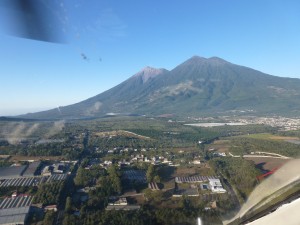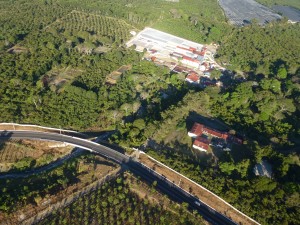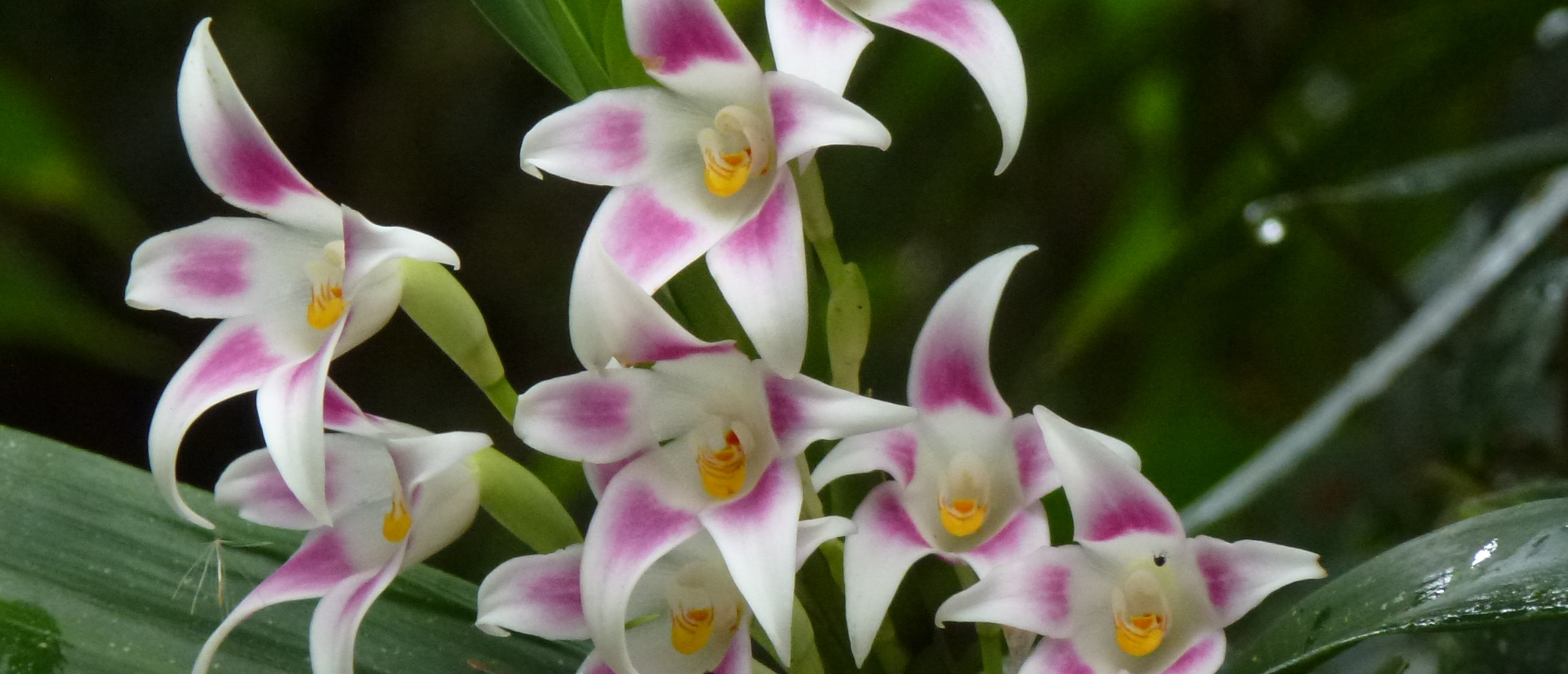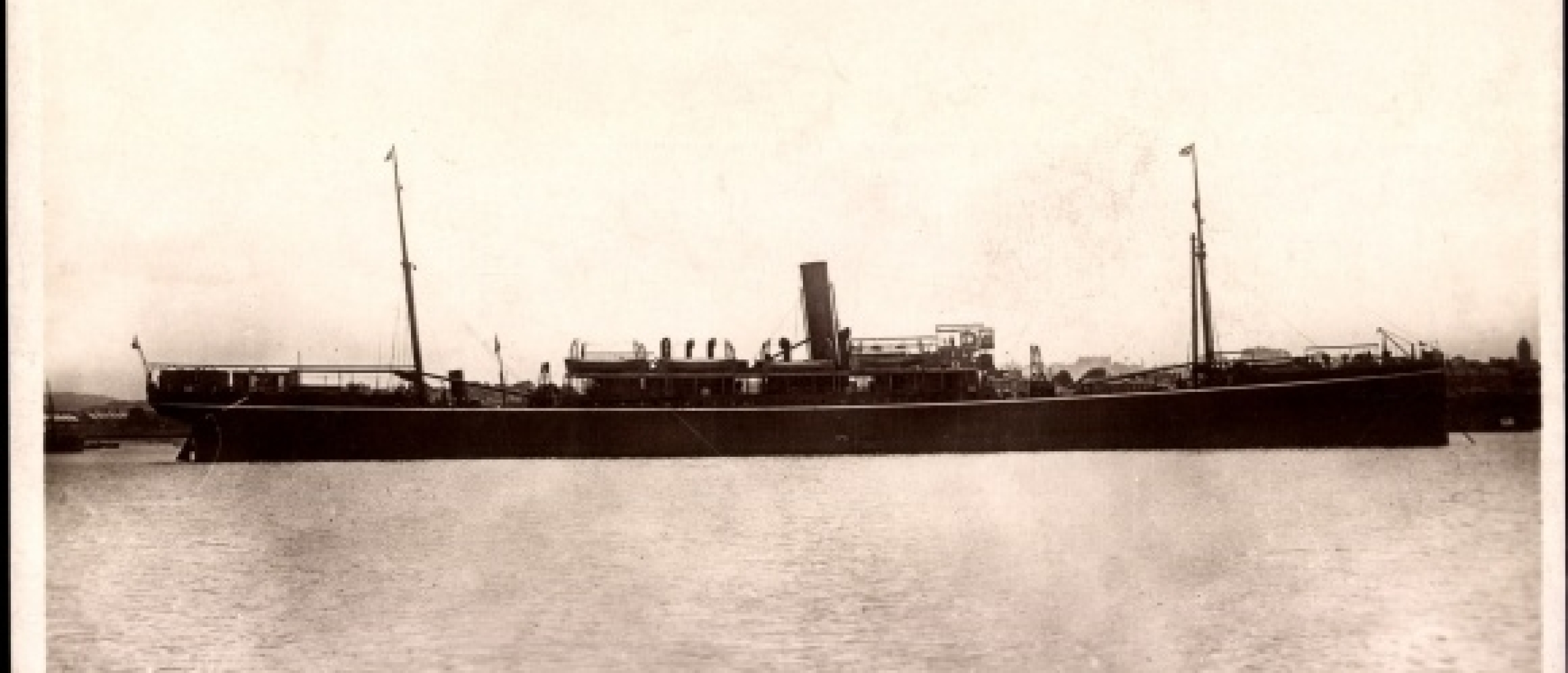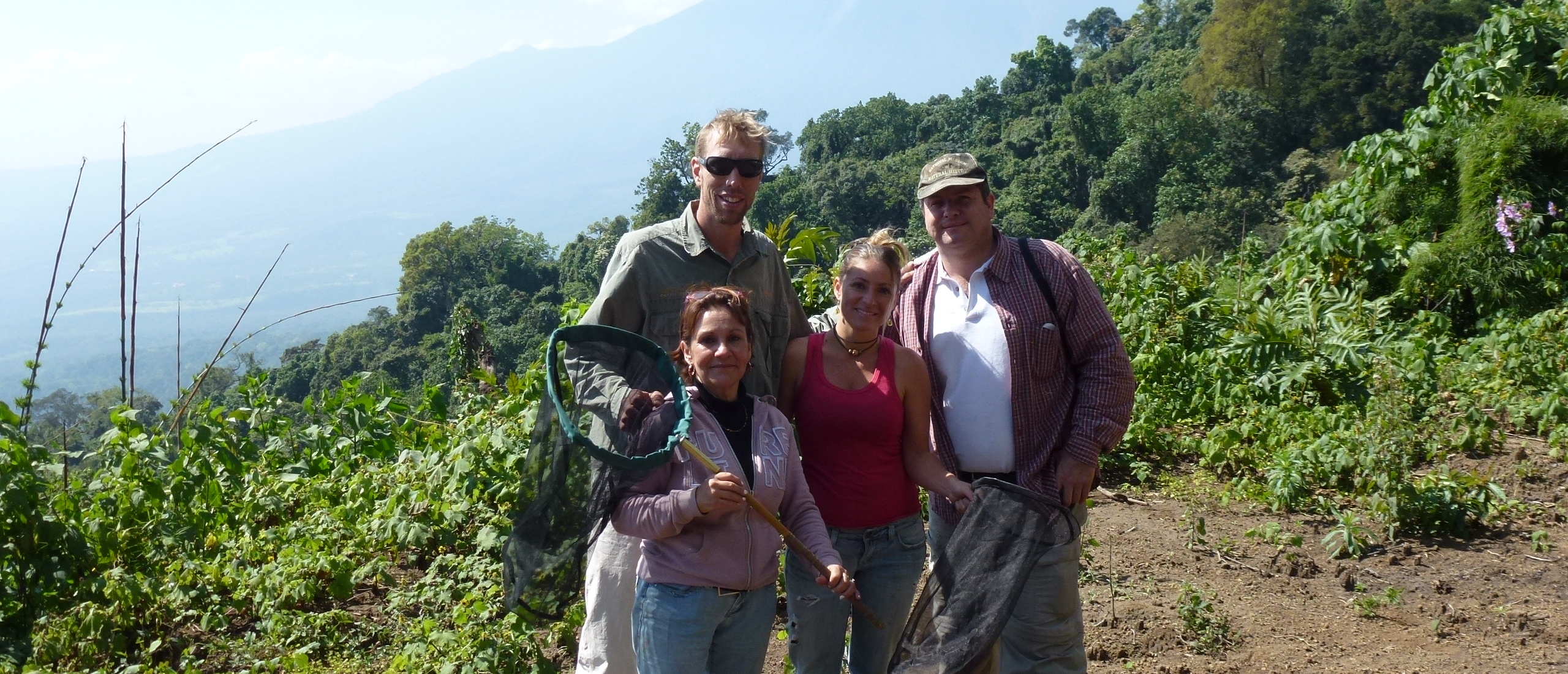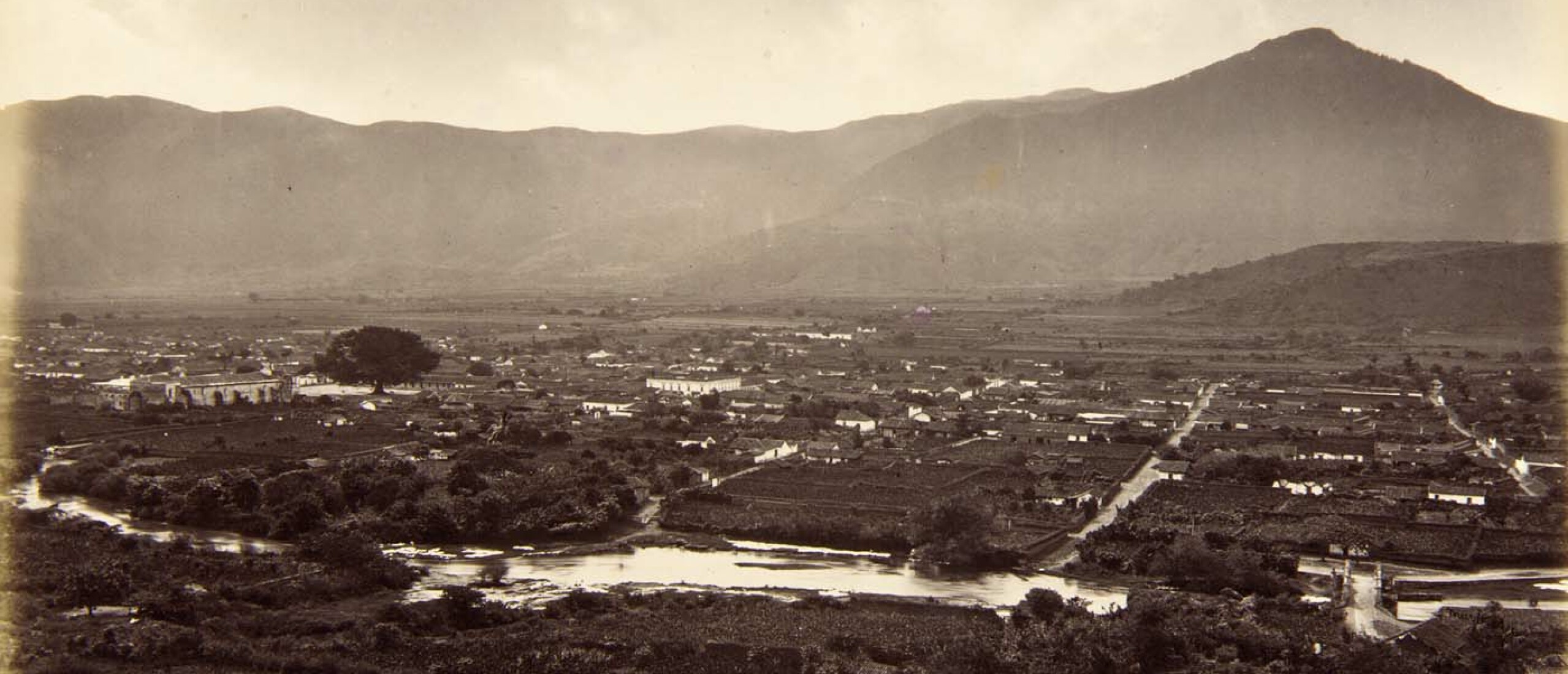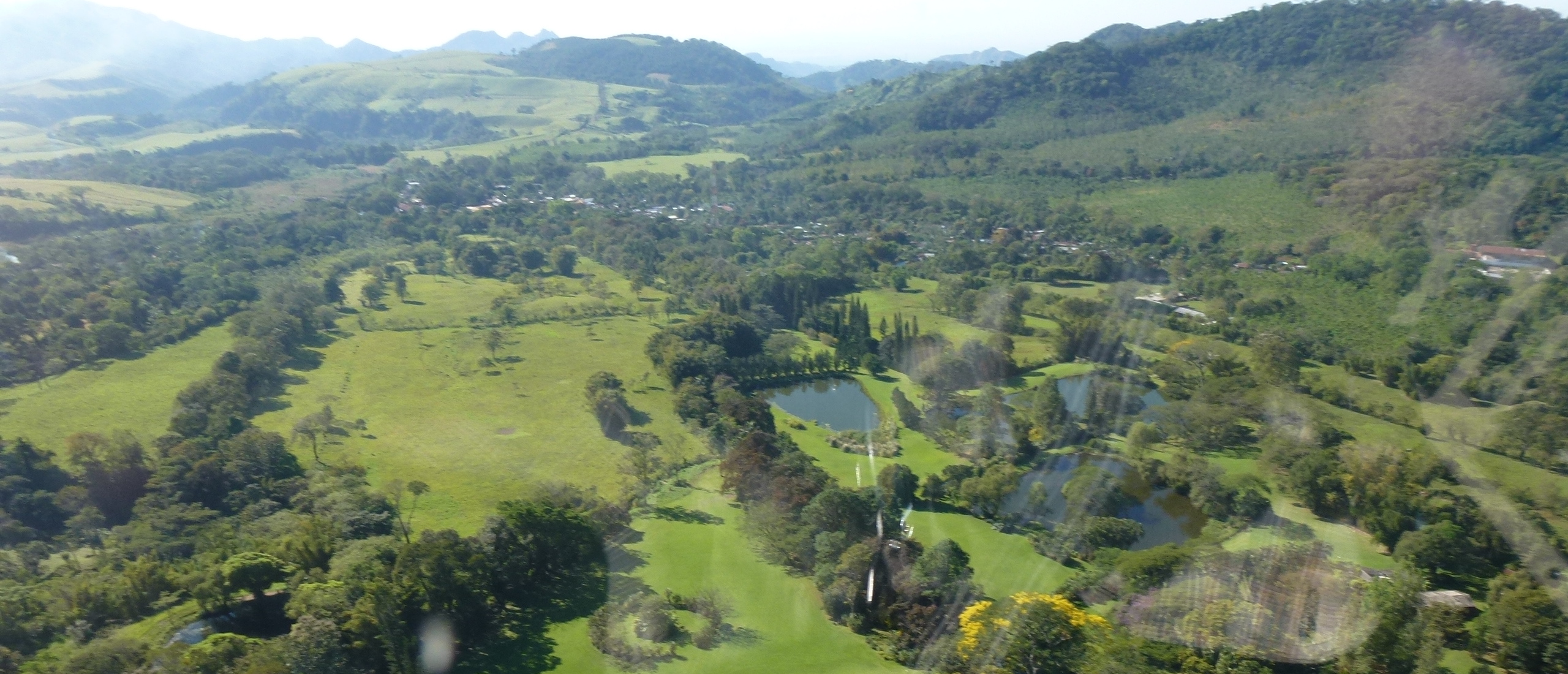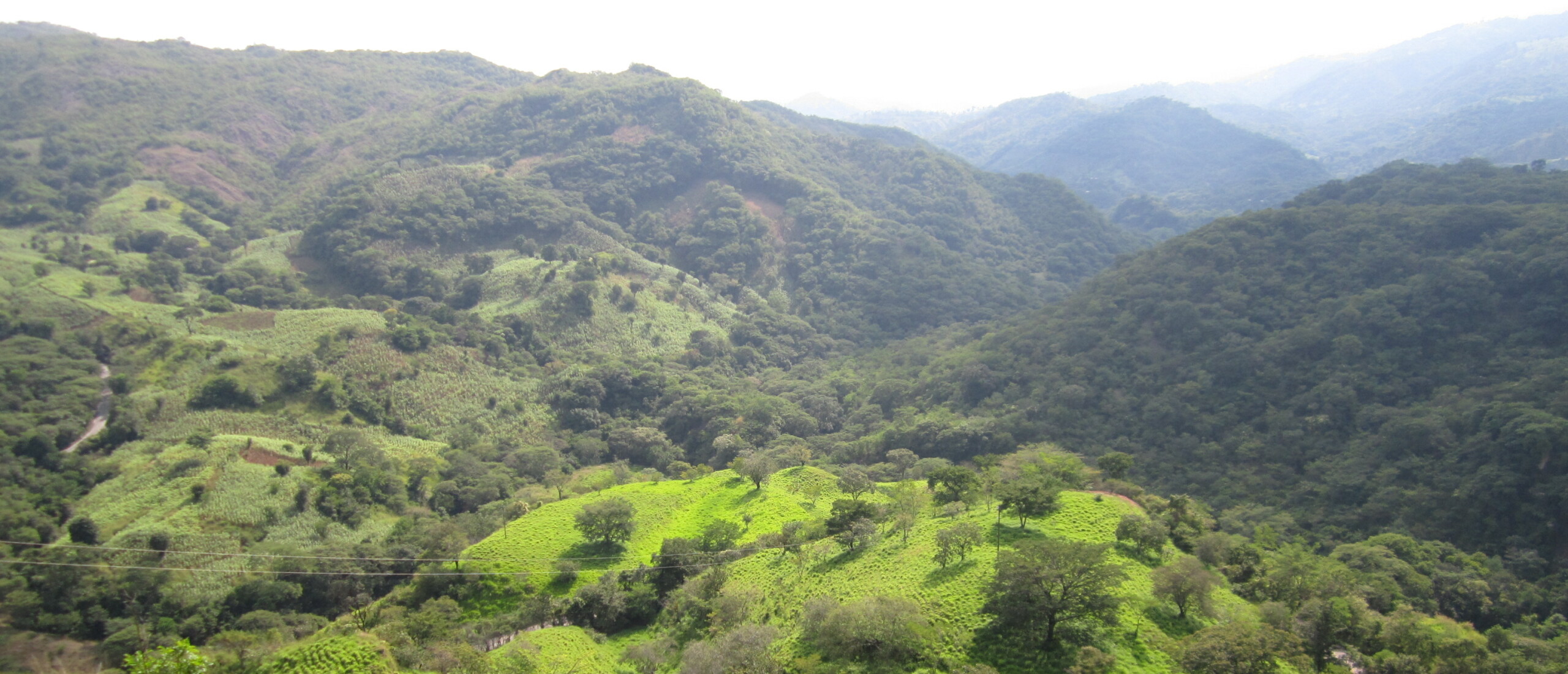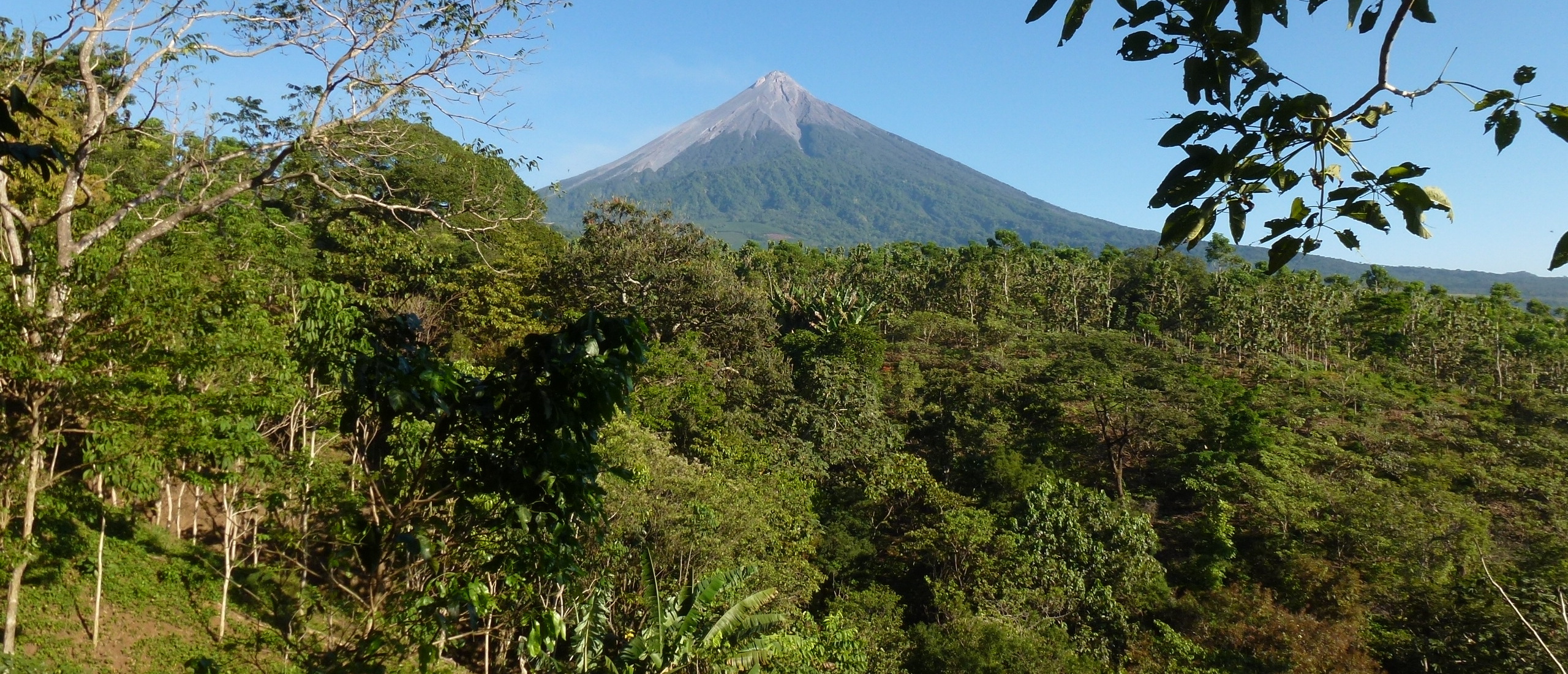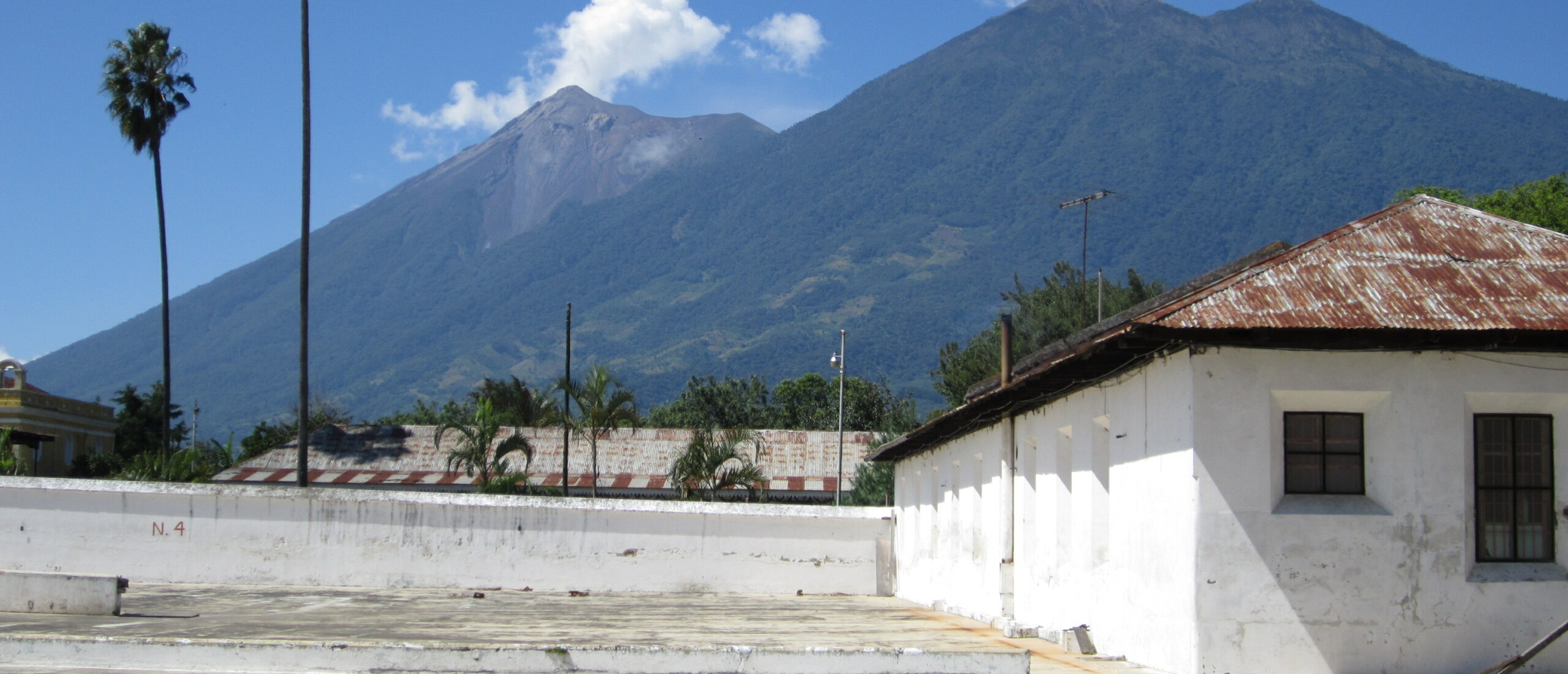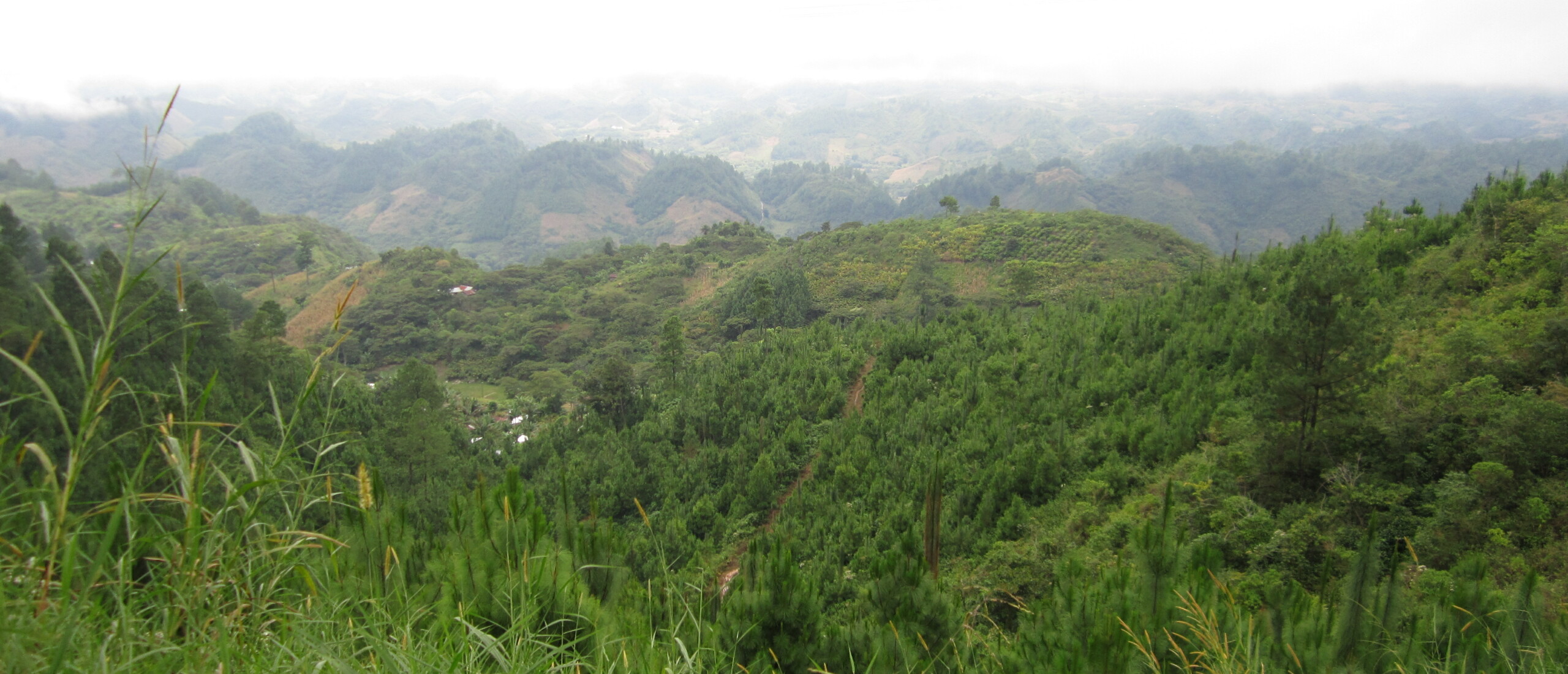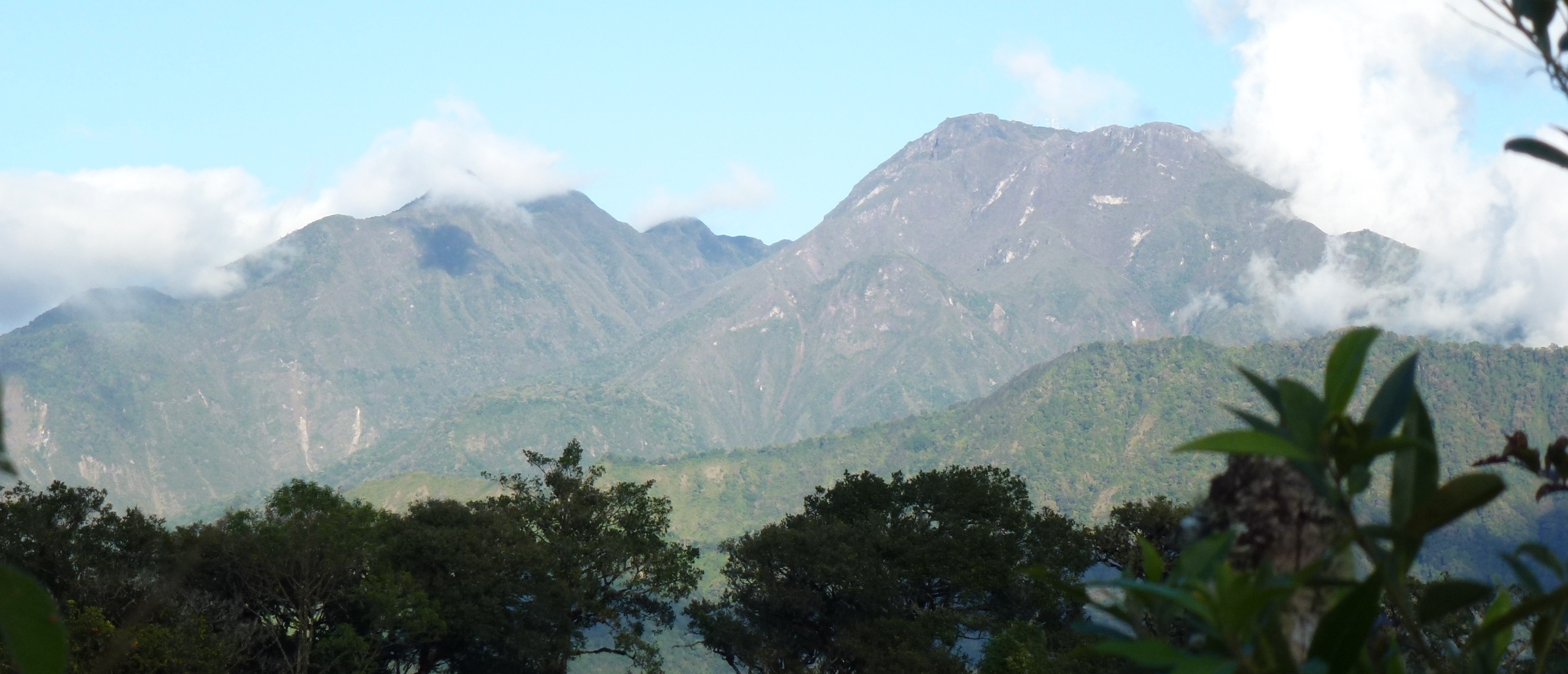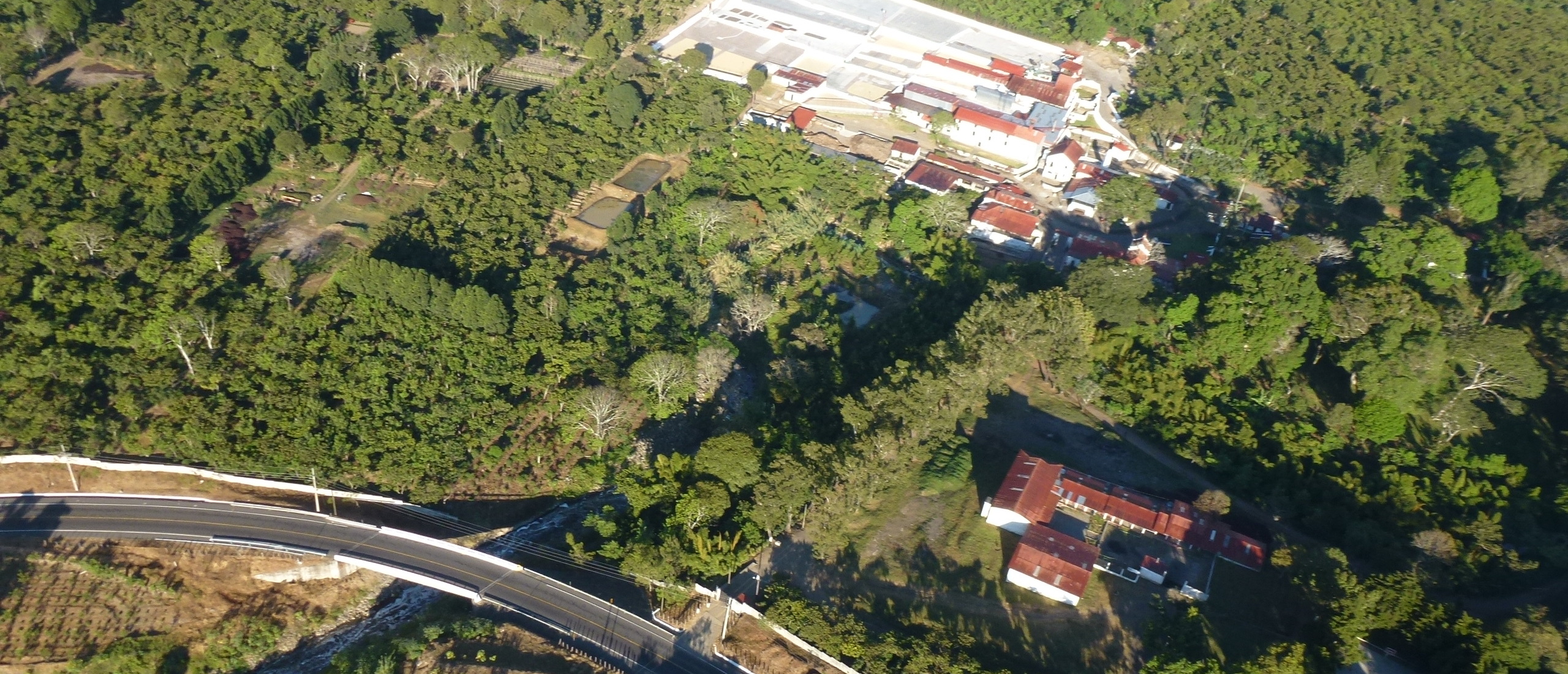
¡Fíjese!
 The word I came to dread during my stay in Central America
The word I came to dread during my stay in Central America
Today I add a letter of my great grandfather's dated 26th April, 1879, sent from the Finca El Capetillo, near Alotenango, in Guatemala. At the risk of appearing ungrateful (which I am absolutely NOT - I received an extraordinary amount of hospitality and kindness during my stay in that country, for which I shall be eternally appreciative), I shall use this opportunity to vent a little frustration at one aspect of Guatemalan life that I would find it hard to adapt to were I ever to settle there - and it is summed up perfectly by the word "¡Fíjese!". This is an untranslatable word meaning something like "Look here!". If you have an arrangement or a meeting in Guatemala, and just before you are due to meet, you receive a phonecall, and the other person says "Fíjese......", then you can be sure that the meeting is about to be cancelled....and those cancellations are VERY common.
 Looking down at El Capetillo from near the summit of Acatenango
Looking down at El Capetillo from near the summit of Acatenango
I may be being unfair to the person concerned, but I cannot resist the opportunity to recount this story. My great grandfather having stayed for lengthy periods at El Capetillo, and having found a large number of insects there, it was one of my greatest desires to visit that finca. Another of my contacts gave me the name of the current owner, and I called and received a friendly reception, even being informed that his uncle was very interested in the history of the finca, and that he would love to meet me and discuss the visit of my great grandfather. We duly arranged that I would travel down from Antigua the following week and spend the day looking around the farm, and meet the uncle if he could be there. As I had no transport of my own, and I thought it would be interesting for her too, I asked my guide and friend Luisa if we could possibly go in her car, to which she agreed, although she had to make considerable alterations to her plans. Finally, the appointed day arrived, and Luisa arrived outside my hotel at 09.00, with plenty of time to spare for our 10.00 meeting at the finca. Always one to confirm and reconfirm appointments, I thought it wise to call before we set off, just to be sure.....and the answer came: "¡Fíjese, hoy es muy difícil. ¿Por qué no vienen a las 12.00?" (Look here, today is very difficult. Why don't you come at 12.00?). This was something of a blow, and meant that Luisa had wasted a whole morning when she could have been working, but we killed the hours until 11.00, when we called again, just to be sure; the same answer came: "Fíjese, hoy es muy difícil. ¿Por qué no vienen a las 15.00?". Luisa's temper was wearing thin, but it seemed there was still a chance of at least seeing something of the finca before dark, so we duly returned to the car at 14.00, this time having decided NOT to call so as NOT to give him the opportunity to " fíjese" us.
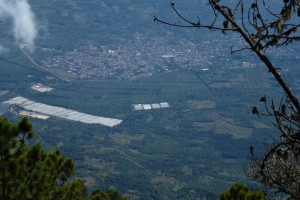 View down towards the town of Alotenango, with the Finca El Capetillo in the foreground
View down towards the town of Alotenango, with the Finca El Capetillo in the foreground
However, this strategy did not work at all, as no sooner had we sat down in the car than my mobile phone rang: "Fíjese, hoy es muy difícil. ¿Por qué no vienen a las 17.30?". At this point my politeness came under heavy strain, and I said: "But if we come at 17.30, we will hardly have any time to see anything before dark". He agreed that that would be a pity, and suggested 17.00 instead. Duly, still with a glimmer of hope in our hearts, we returned to the car at 16.00, only to receive another call, saying: "Fíjese, hoy es muy difícil. Hay mucho tráfico. ¿Por qué no lo hacemos otro día?" (Look here, today is very difficult. There's a lot of traffic. Why don't we do it another day?). Well, there WAS a lot of traffic as it was a day when many people go on long runs, bearing flaming torches with them, causing severe traffic problems, but WHY he could not just tell us from the start that that day was not suitable, instead of fíjese-ing us ALL day and thereby messing up a whole day for us, I do not know. It seemed symbolic of a certain carelessness that exists among some members of the local populace when it comes to other people's arrangements, as I experienced similar situations on several other occasions during my stay, not only in Guatemala, but also in Panama and Ecuador. I must, however, give this man his due - he did later try to reschedule my visit, but it never coincided with a time when I was in the area...and Luisa was extremely wary of taking another day off for such an arrangement! Never mind, though - I was later, thanks to Mitch Denburg, given the wonderful opportunity to FLY low over the Finca El Capetillo in a helicopter, and I also looked down on it from the upper slopes of the volcano Acatenango, so I ended up seeing it pretty comprehensively without even needing to enter!
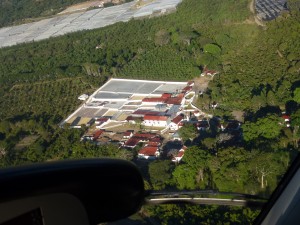 The main buildings of El Capetillo from the air
The main buildings of El Capetillo from the air
CAPETILLO, ANTIGUA CENTRAL AMERICA April 26th, 1879 My dear Mother, I am at last away from the city of Guatemala, and very glad I was to leave the Gran Hotel; had just a month there. I left the city on the 15th per diligence, then walked on to the finca of Señor Arzú, at Ciudad Vieja (3 miles distant); stopped here one night, and next day came over here on horseback (another 6 miles) and about 35 miles from the city. I am very comfortable here in the house of Señor Juan Rodriguez; can do just as I like; he is but little here, the estate is managed by Señor Jorge Seravia, who is very kind to me indeed, but does not speak a word of English; however, I manage to talk to him somehow in the few words of Spanish I know. Capetillo is a very large sugar estate, so large that they travel about it on horseback, very pretty place, just between the two volcanoes. They have a fine garden and many fruit trees; there are 80 families living on the place, all in Rodriguez’s employ. Señor Rodriguez (who speaks French and Spanish but very little English) returned to Guatemala from France about 3 weeks after I arrived in the country, and should probably have been here sooner had he not been away; he made his first visit to Capetillo after having been away a year, travelling first to Capetillo after having been away a year, travelling in Europe. They had triumphal arches, fireworks etc, to celebrate his return. I saw him many times in the city; he is a good naturalist and very wealthy; he has two brothers, both of whom have large coffee and sugar estates; hope to stay with one or both of them this summer.
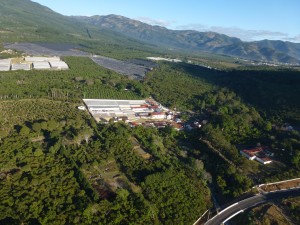 The Finca El Capetillo from the air
The Finca El Capetillo from the air
I remain here a few weeks, then on to San Cayetano, belonging to Señor Arzú, who like Rodriguez, has been to London, then perhaps to El Zapote, after that I return to the city, may be away two months altogether; letters had better be addressed care of Mr. Magee, Guatemala. I received a letter from Walker on April 15th, he was then at Portsmouth. I had a visitor here for 2 days, Mr. Blancaneaux, the French botanist, who came over here to get Orchids from the adjacent forest. I had a day out with him; he was not very successful, however. There are thousands of orchids here on the trees in the forest (I might say they have thousands in the garden here in the open air) of different species, but very few, and those very small, of the species required by Veitch. Travelling in the forest is hard work, you constantly have to cut your way through vegetation; it does not look very tropical, except for a small Fuchsia and the many orchids and other epiphytes owing of course to us being so high up above the level of the sea. The climate here suits me very well indeed, also the food. M. Blancaneaux thinks I am too comfortable at Capetillo. I shall feel it later on, he says, when I have to rough it.
The Volcán de Fuego towers just above us, and although looking exceedingly close, yet it takes two or three days to get to the summit and back. I find plenty of work to do here, am not in the least "dull". Can walk in the garden or watch their sugar machinery when I have nothing else to do. There are lots of Indians here in the village of Alotenango (3 miles off) and many Indians on the Estate, they seem very quiet and friendly, and appear rather afraid than otherwise of Europeans. I take one with me sometimes when I go in the forest, give them 1/- for a day’s outing; they are well satisfied. The Guatemalan people are very slow and quite different to us, they never hurry about anything, are not fond of soap and water, never seem to think of dusting or cleaning up the house except on special occasions; they feed, however, very well, here dinner takes at least an hour, also breakfast. They seem fond of animals etc. Many have a tame deer here; in the house at Ciudad Vieja, they had a tame eagle, pheasant, parrots, monkeys etc. Most of the people are fond of natural history, are very hospitable, and ever ready to lend you horses, Indians etc. The greatest trouble to me just now is the language. Till I can speak Spanish better, shall have many difficulties; as for Señor Rodriguez, did I not know a little French, should have much difficulty in talking to him I send this letter on this morning by Señor Seravia, who is going to Antigua. We have had a lot of rain at Capetillo (4100 feet above sea level) the last two days. Am rather glad to see a little rain than otherwise, for the roads at present are inches deep in black dust. Have not yet felt any signs of an earthquake; the Fuego smokes a little, that is all. Am gradually getting used to the dust of this country; it is a work of time, I suppose. Father would be at home here in the garden; they have a fine lot of flowers and gardeners to look after it, but of course, no greenhouses, everything is in the open air; in the rooms, there are no fireplaces, it is never cold enough to make a fire necessary. Grass is so scarce that they plant and cultivate it on purpose to feed the cattle. Trusting you are all well, I remain etc.


